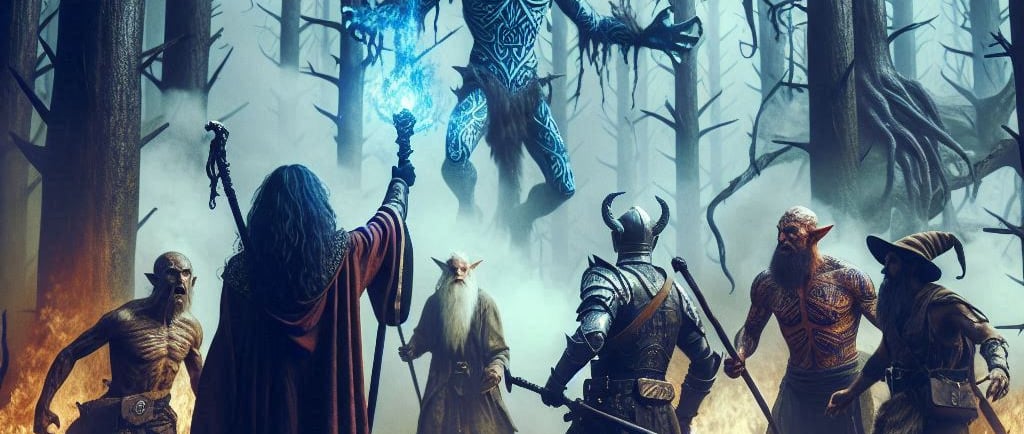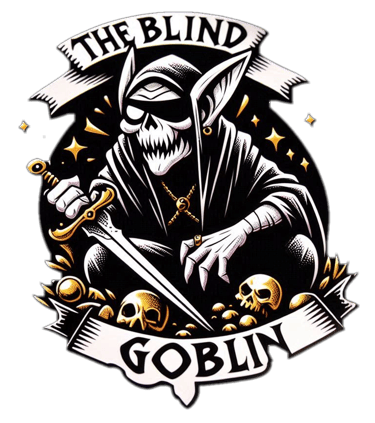What Sets Dungeons and Dragons Apart from Other Tabletop RPGs?
5 min read


The Legacy and Influence of Dungeons and Dragons
Dungeons and Dragons (D&D), first released in 1974 by Gary Gygax and Dave Arneson, holds the distinction of being the first modern tabletop role-playing game. This groundbreaking game established the foundation of the genre, introducing concepts such as character creation, complex narratives, and a emphasis on collaboration—all elements that have since become staples in tabletop RPGs. Its inception marked a significant shift in gaming, propelling tabletop experiences into new realms of creativity and imagination.
The initial reception of D&D was met with a mix of enthusiasm and skepticism. While a dedicated community of gamers embraced the innovative mechanics and rich storytelling, critics often viewed it with suspicion, often mischaracterizing it as a dangerous pastime. Despite the controversies of the late 1970s and early 1980s, D&D persevered, fostering a passionate fan base that would help expand its reach. As the years progressed, the game evolved through several editions, each refining its mechanics and accessibility, which contributed to its growing popularity.
The influence of Dungeons and Dragons extends far beyond its dedicated player base; it has shaped the very fabric of modern gaming culture. Numerous tabletop RPGs have drawn inspiration from its framework, adopting similar mechanics and character development systems that encapsulate player agency and narrative depth. Additionally, D&D has permeated popular culture, inspiring movies, television shows, and literature, effectively embedding itself into the wider cultural consciousness. From its iconic classes and spells to its role as a social activity, D&D has not only paved the way for subsequent tabletop games but has also left an indelible mark on various forms of entertainment.
In conclusion, the legacy of Dungeons and Dragons as the pioneering tabletop RPG is undeniable. Its historical significance and lasting influence have shaped the genre, ensuring that it remains relevant and cherished by new generations of players.
Unique Game Mechanics and Systems
Dungeons and Dragons (D&D) is notably distinguished from other tabletop role-playing games (RPGs) by its unique game mechanics and systems. One of the most prominent features is the use of polyhedral dice. Unlike many RPGs that primarily rely on a single type of die, D&D utilizes a variety of polyhedral dice, including the iconic twenty-sided die (d20). This diversity in dice not only adds an element of unpredictability to gameplay but also enhances the strategic depth, as different tasks may require different types of rolls.
Another defining characteristic of D&D is its class and level system. Players choose from a range of character classes—such as clerics, wizards, and rogues—each with distinct abilities and roles within the game. This class-based system allows for a tailored gameplay experience, as players can construct characters that align with their personal play styles. Additionally, leveling up through experience points adds a rewarding progression mechanic, which is often less pronounced in other RPGs that do not emphasize character evolution in the same way.
Combat and magic rules in D&D are structured to create a balance between strategic planning and spontaneous decision-making. Detailed guidelines govern how combat unfolds, including turn-based actions, movement, and use of spells. This complexity often involves tactical considerations, making encounters both engaging and challenging. Furthermore, D&D's narrative-driven campaign structure is enhanced by the role of the Dungeon Master (DM), who facilitates storytelling and adapts rules to suit the unfolding narrative, offering flexibility that differs from more rigid RPG systems.
In comparison to other tabletop RPGs, these unique mechanics contribute significantly to Dungeons and Dragons' enduring popularity. The combination of diverse dice, a comprehensive class system, intricate combat rules, and a narrative focus fosters a dynamic play environment that is both immersive and participatory, setting D&D apart from its competitors in the realm of tabletop role-playing games.
Community and Cultural Impact
Dungeons and Dragons (D&D) has developed a dynamic and highly engaged community that distinguishes it from other tabletop role-playing games (RPGs). This community is not only vibrant but also fosters meaningful social interactions, collaboration, and creativity among players from diverse backgrounds. One of the most visible manifestations of this community is the proliferation of conventions dedicated to D&D, where enthusiasts gather to share experiences, participate in games, and exchange ideas. Events like D&D Live and Gen Con have become not only platforms for gameplay but also hubs for networking and cultural exchange, allowing players to connect over their shared passion for storytelling and adventure.
Moreover, the rise of online communities has further cemented D&D's cultural significance. Platforms such as Reddit, Discord, and various specialized forums allow players to discuss strategies, share homebrew content, and offer support for newcomers. This digital ecosystem has expanded the reach of D&D, enabling players to form groups regardless of geographical constraints. Additionally, the popularity of live-streamed campaigns, most notably on platforms like Twitch and YouTube, has contributed to an unparalleled mainstream appeal. Shows like "Critical Role" have showcased the game’s potential for storytelling, encouraging viewership and participation, thus broadening the audience even further.
The cultural implications of Dungeons and Dragons extend well beyond the gaming table. Its influence permeates television, movies, and literature, as evidenced by popular series and films that incorporate D&D elements or directly reference its mechanics and lore. This cultural impact signifies a shift in societal perceptions, as D&D has emerged as a cornerstone of modern geek culture, facilitating community bonding and encouraging collaborative storytelling. Such developments indicate that D&D is not merely a game, but a cultural phenomenon that enriches relationships and fosters creativity among its players.
Accessibility and Resources for New Players
Dungeons and Dragons (D&D) offers exceptional accessibility for new players compared to many other tabletop role-playing games. One of the primary factors contributing to this is the availability of beginner-friendly materials. Wizards of the Coast, the company behind D&D, has developed various resources tailored specifically for newcomers. These include the D&D Starter Set and the Essentials Kit, both designed to introduce players to the fundamental rules and gameplay mechanics gently. These kits often contain simplified rulebooks, pre-made character sheets, and introductory adventures that facilitate an easy entry point into the game.
In addition to physical materials, an abundance of online resources further enhances accessibility. Numerous websites, forums, and video platforms provide tutorials, gameplay examples, and advice for novice players. This wealth of information allows individuals to learn at their own pace and offers support that is often lacking in other tabletop RPGs. The extensive community surrounding D&D also fosters inclusivity, as players frequently share experiences and tips that can assist new players in overcoming common challenges faced when starting out.
Furthermore, D&D places a strong emphasis on character creation options that are diverse and inclusive. Players are encouraged to explore numerous backgrounds and identities, which enrichens the storytelling aspect of the game. This approach not only allows individuals to see themselves represented within the game but also helps players from varied backgrounds find connection and community in their D&D experiences. As a result, Dungeons and Dragons attracts a broad audience, distinguishing itself from other RPGs that may not prioritize these elements. The combination of accessible resources and an inclusive environment has solidified D&D's reputation as a welcoming space for all aspiring tabletop players.

